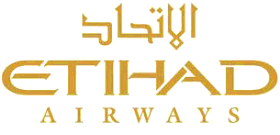 Etihad's A321LR Redefines Premium Flying Standards for African Markets
Etihad's A321LR Redefines Premium Flying Standards for African Markets
The aviation landscape has witnessed a groundbreaking moment as Etihad Airways successfully operated its inaugural A321LR service from Abu Dhabi to Phuket, establishing unprecedented luxury standards for narrowbody aircraft operations. This milestone represents far more than a simple fleet addition—it signals a transformative shift that could reshape how African travel professionals approach premium route development and client expectations across medium-haul sectors.
The Abu Dhabi-based carrier's latest aircraft delivery marks the beginning of an ambitious 30-unit A321LR program, each configured to deliver widebody-caliber service on single-aisle platforms. For African travel industry stakeholders, this development opens fascinating possibilities for enhanced connectivity between the continent and key Asian destinations, particularly as traditional routing patterns evolve to meet changing passenger demands.
According to Arik De, Etihad's Chief Revenue and Commercial Officer, the A321LR represents the airline's determination to "deliver extraordinary experiences on every route we serve." This philosophy directly impacts African markets, where discerning travelers increasingly seek premium options that previously required connections through European hubs or acceptance of lower service standards on regional carriers.
The aircraft's revolutionary cabin design establishes new benchmarks across all service classes. Two fully enclosed First Suites feature sliding doors, flat beds, and sophisticated styling that rivals the world's finest hotel accommodations. Each suite includes expansive space for dining or relaxation, whether passengers prefer solitude or companion interaction, supported by 20-inch 4K entertainment screens, wireless charging capabilities, and seamless Bluetooth connectivity.
Business class passengers benefit from fourteen seats arranged in a 1-1 herringbone configuration, ensuring every traveler enjoys direct aisle access and window views—a significant advantage for African business travelers who frequently endure lengthy journeys between continental destinations and Asian commercial centers. The 17.3-inch 4K displays, wireless charging, and intuitive storage solutions address the specific needs of modern professionals who require productivity during flight.
Even economy class passengers experience elevated standards through 144 ergonomically designed seats with generous legroom, 13.3-inch 4K touchscreens, USB charging ports, and Bluetooth headphone pairing. This comprehensive approach to passenger comfort reflects growing expectations among African travelers, who increasingly demand value-driven premium experiences rather than accepting basic transportation.
The technological infrastructure supporting these services deserves particular attention from African travel professionals. High-speed Wi-Fi capabilities enable video conferencing, streaming, and gaming throughout the journey, addressing the connectivity demands of business travelers who cannot afford to remain offline during extended flights. This technology rollout across Asian routes suggests Etihad's commitment to maintaining competitive advantages in markets where African passengers represent growing segments.
From a strategic perspective, the A321LR's 7,400-kilometer range capability enables direct connections between Abu Dhabi and numerous African destinations that previously required larger aircraft or multiple stops. Analysis indicates that cities like Cairo, Lagos, and Cape Town represent prime candidates for future A321LR deployment, potentially offering African travelers more convenient access to Southeast Asian destinations without European transit requirements.
The competitive implications extend beyond passenger comfort to fundamental business model considerations. Narrowbody aircraft dominate 60.2% of the African aviation market, yet few operators offer genuine luxury experiences on single-aisle platforms. Etihad's A321LR configuration creates new possibilities for African carriers considering fleet modernization or route expansion strategies, particularly as tourism flows between Africa and Southeast Asia continue growing from current levels of approximately 94,000 annual arrivals.
Market research suggests that African arrivals to Thailand alone could reach 190,000 by 2030, representing substantial growth opportunities for carriers offering premium services. The A321LR's ability to serve these routes with widebody-quality amenities while maintaining narrowbody economics could influence how African airlines approach their own fleet planning and service differentiation strategies.
For travel professionals across the continent, understanding these developments becomes crucial for client advisory services. Premium leisure travelers and business executives increasingly expect seamless connectivity, enhanced comfort, and technological integration throughout their journeys. The A321LR's comprehensive approach to these requirements establishes new industry standards that competitors must address or risk losing market share to more innovative operators.
The aircraft's enlarged overhead bins and thoughtful cabin design details reflect broader industry trends toward passenger-centric service delivery. African travel professionals should recognize these elements as indicators of evolving customer expectations that will influence booking decisions across all market segments, from corporate travel programs to luxury leisure arrangements.
Looking ahead, Etihad's A321LR deployment strategy includes confirmed services to North African destinations including Algiers and Tunis, with additional African routes under consideration. This expansion pattern suggests the carrier recognizes Africa's growing importance as both a source market and destination for premium travelers, creating partnership opportunities for local operators and ground service providers.
The broader implications for African aviation development cannot be overlooked. As international carriers like Etihad invest in premium narrowbody configurations for African routes, local airlines face pressure to enhance their own service standards or risk losing high-value passengers to foreign competitors. This dynamic could accelerate modernization efforts across the continent's aviation sector, ultimately benefiting travelers through improved options and competitive pricing.
The successful launch of Etihad's A321LR service represents more than operational achievement—it demonstrates how innovative aircraft configurations can transform market dynamics and passenger expectations. For African travel professionals, staying informed about these developments and their implications for client services becomes essential for maintaining competitive positioning in an increasingly sophisticated marketplace where luxury and efficiency converge on narrowbody platforms.
